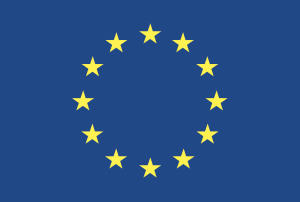Abstract
Magnetic resonance imaging (MRI) is playing an increasingly important role in the study of neurodegenerative diseases, delineating the structural and functional alterations determined by these conditions. Advanced MRI techniques are of special interest for their potential to characterize the signature of each neurodegenerative condition and aid both the diagnostic process and the monitoring of disease progression. This aspect will become crucial when disease-modifying (personalized) therapies will be established. In the past decade, artificial intelligence has been applied enthusiastically in the field of medicine, outperforming other established methods. In the field of neurodegenerative diseases and biomarkers, artificial intelligence algorithms applied to MRI have proven their worth in many ways including aiding the image-based prediction of different neurological diseases, the anatomical segmentation of specific brain structures, and the discovery and development of new therapies.
Short Bio
Federica Agosta was born in Milano on 01/04/1978, took her Graduation in Medicine in 2003, Post-Degree Graduation in Neurology in 2008, and PhD in Experimental Neurology in 2012. She is an Assistant Professor of Neurology at Vita-Salute San Raffaele University and Group Leader of the Neuroimaging of Neurodegenerative Diseases Unit at the Institute of Experimental Neurology, Division of Neuroscience, Ospedale San Raffaele (OSR), Milano, where she conducts research in patients with neurodegenerative conditions. She has a broad background in clinical neurology and neuroimaging, with specific training and expertise in MRI and neurodegenerative diseases. In the period 2002-2007, as junior research fellow at the Neuroimaging Research Unit, OSR, she collaborated in many research projects on the use of quantitative MR techniques in the study of normal aging, multiple sclerosis, amyotrophic lateral sclerosis (ALS), and Parkinson’s disease. During those years, she improved her skills on acquisition and post-processing techniques applied to functional MRI, diffusion tensor MRI and morphometry. This knowledge was instrumental in the success of her visiting fellowship at the Memory and Aging Center, UCSF in 2007-2008, during which she expanded her understanding of Alzheimer’s disease, frontotemporal dementia, and primary progressive aphasia. During her PhD at Vita-Salute San Raffaele University (2009-2012), she dealt with several aspects of pathophysiology of neurodegenerative diseases using MR techniques, with particular interest in young onset dementia and ALS. Dr. Agosta has been member of the Steering Committee of the Italian Society for the Study of Dementia (SINdem) from 2016 to 2018 and then she held the position of Secretary of the society from 2018 to 2020. In SINdem, she is also the coordinator of the Neuroimaging Study Group. Federica Agosta is also Chair of the Neuroimaging Society in ALS (NISALS) and of the Neuroimaging Panel of the European Academy of Neurology. She is also participating actively to the Neuroimaging Subcommittee of the Italian Neurological Society. Her research has led to the publication of over 200 Pubmed-referenced papers (H Index 59, Scopus). Since 2016, Federica Agosta is Section Editor of the NeuroImage: Clinical journal. In 2010, Dr. Agosta has been selected as young researcher participant for the 60th Interdisciplinary Meeting of Nobel Laureates for her outstanding contribution to the application of MRI techniques to the study of neurological diseases. In 2016, she has been awarded an ERC Starting Grant.
Keywords
Neurodegenerative diseases, MRI, Diagnosis, Stratification, Prediction









